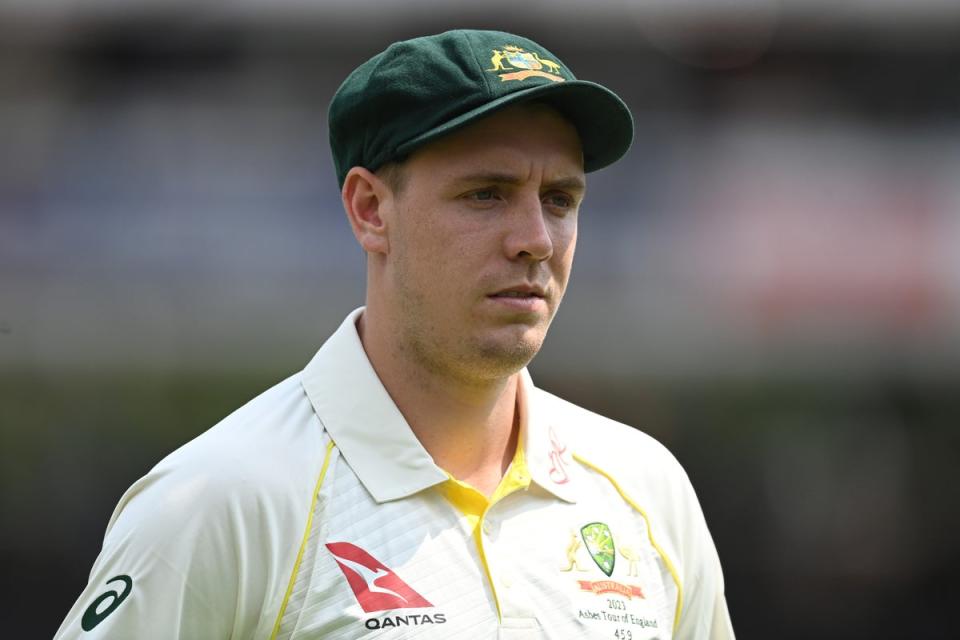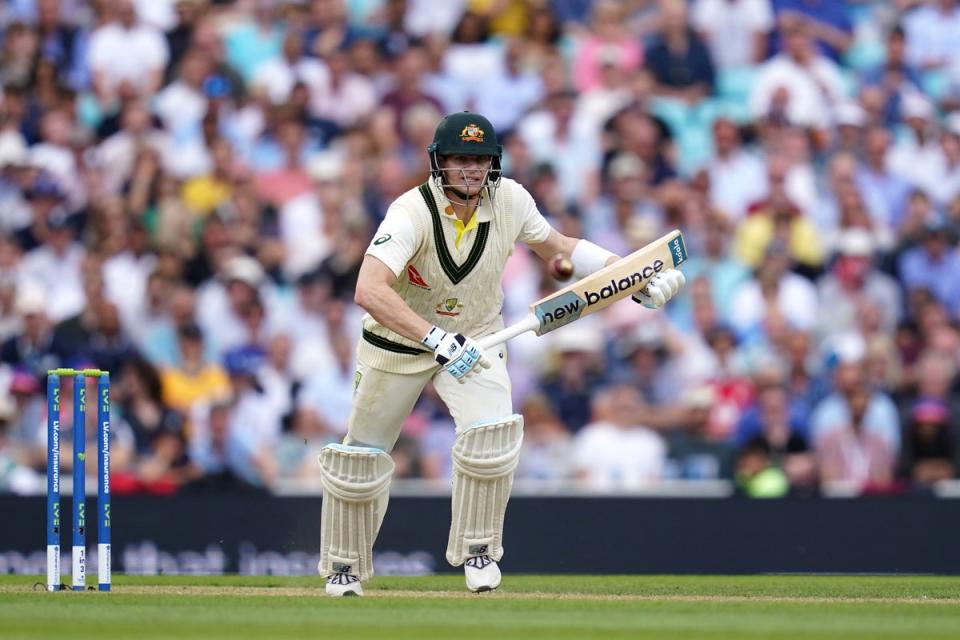Australia’s divisive Steve Smith selection ensures sandpaper scandal still casting shadow

It was the selection decision about which everyone who is anyone in Australian cricket had expressed an opinion. When David Warner announced his intention to retire from Test cricket at the end of the series against Pakistan in Sydney last year, he gave selector George Bailey plenty of time to consider how best to replace a transformative figure – and plenty of time for the talking heads to have their say.
Ricky Ponting put forward the case of Cameron Bancroft, the form opener in the Sheffield Shield. Matthew Hayden liked the versatile Matt Renshaw. Warner himself suggested Marcus Harris, a some-time colleague internationally who has carried the drinks as the reserve opener for most of the last two years.
Bailey, captain Pat Cummins and coach Andrew McDonald reached a different conclusion. On Wednesday, the jury returned their verdict with a week until the start of the first Test of the West Indies: Steve Smith would move up to replace Warner and open for the first time, while Cameron Green would return to the side and bat at four.

A bold, divisive call has been received predictably vociferously. Even before it was confirmed, former captain Kim Hughes was expressing his displeasure. “It really would be a slap in the face for the Sheffield Shield competition if Bancroft is not chosen,” Hughes said, at the possibility of a recall for Green. Bancroft averages nearly 57 with the bat in Australia’s first-class competition.
“What sort of message does that send?” Hughes continued. “I know the Shield might not be what it was but it is still the best domestic competition in the world. If he was just a bit better than the others with his efforts in the Shield, he was miles ahead. Opening the batting in Tests is a real specialist’s position.”
Hughes’s comments reflect a view in some quarters that breaking from convention is not the done thing. England’s Bazball brains trust have been criticised for ignoring the case of Liam Dawson, the best spinner in the County Championship, to favour the higher release points and ceilings of Tom Hartley and Shoaib Bashir on the upcoming tour of India.
Similarly, the giving of the gloves to part-time wicketkeeper KL Rahul over a specialist on India’s trip to South Africa was unpopular – at least until Rahul crafted a sparkling hundred in difficult circumstances at Centurion.
But with Smith a willing participant in the plan, the return of Green to Australia’s Test XI should hardly be seen as illogical. His selection ensures the presence of Australia’s most talented all-round cricketer. The 24-year-old’s considered approach at the crease is better suited to four than further down the order, where the young all-rounder has often looked uncertain of how best to pace his innings, and struggled with the anxiety that accompanies waiting to bat. That he adds value as a versatile seam bowling option and one-man missile defence system in the gully only strengthens his case.

Besides, in the past 18 months, McDonald and his staff have guided Australia to T20 and ODI World Cup wins, a World Test Championship crown and an Ashes retention in England – they have earned the benefit of the doubt.
Smith’s willingness to push up the order is altogether more intriguing. If he is an unconventional solution to the problem, there is perhaps no batter who has challenged the orthodoxy of Test cricket more in the modern era. But the Smith of late has not been the Smith of old; where once he was threatening to establish himself in unoccupied air as the best since Bradman, Smith is now back among the pack as one of the most accomplished mortals.
A new challenge, then, might just reinvigorate him. The 34-year-old perhaps still has half an eye on the nine tons required to match Ricky Ponting’s record Australian tally of 41 Test hundreds.
“It was refreshing that Steve had come forward and said he wanted it,” said Bailey. “It’s selfless that someone who has had so much success in one position or a couple of positions in the middle order is open and willing and hungry to have a crack at something new and something different.”

In a cricketing sense, then, there is a logic here. But there are wider elements at play. It was Bancroft, of course, who was the junior conspirer in the sandpaper scandal nearly six years ago, which still casts a shadow. The opener’s misdeeds, performed at the direction of Smith and Warner, were captured on camera in Cape Town; a young batter still making his way in the game was given a significant ban.
Bancroft returned to the side at the first opportunity after serving his six-month suspension but the sense that his face doesn’t fit has prevailed since. There have been suggestions that he had angered the so-called cartel of quicks led by Cummins and Mitchell Starc with comments he made in an interview with the Guardian in 2021, inferring that the bowlers were aware of the ball-tampering taking place.

The rumours are sufficiently strong that captain Cummins reportedly felt the need to call Bancroft directly and confirm that his overlooking had been solely for cricketing reasons. But with Warner promising to “raise some eyebrows” in an upcoming tell-all autobiography, the scandal simply will not fade into the background. For matinee idol Cummins, whose captaincy has generally represented a welcome break from the win-at-all-costs mentality that led to a culture which culminated in the events of Cape Town, it is a fly in an otherwise perfectly smooth ointment.
For now, though, it will be on Smith and Green to prove their worth. A West Indies side without the promising Jayden Seales (injury) and Jason Holder, who has elected to prioritise franchise cricket ahead of the T20 World Cup, may not have the firepower of some other attacks, but the wily Kemar Roach, ever-improving Alzarri Joseph and young gun Shamar Joseph have the firepower to test the integrity of the hosts’ reshaped top order.
And if Australia’s opening gambit fails? Well, you suspect Bancroft – and the critics – will be happy to jump at the chance.

